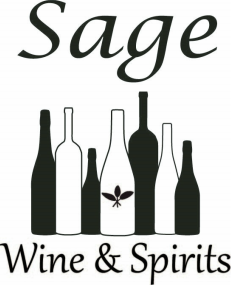|
Argiolas Costamolino Vermentino ($12.99)
Sardinia From the distributor: "Argiolas is the foremost wine estate on the island of Sardinia producing archetypal wines from native varietals. The winery was founded in 1938 by Antonio Argiolas and was the first on the island to pursue quality over quantity. Today, the Argiolas family is recognized as Sardinia’s leading producer of wine. Sardinia is the second-largest island in the Mediterranean and lies roughly 190 miles west of Italy's mainland. The vineyards of Argiolas are located in Serdiana in the Trexenta hills just north of the capital of Cagliari. Argiolas farms 600 acres of native Sardinian grapes including Nuragus, Monica, and Cannonau. Costamolino, named for the area, is made from Vermentino, an aromatic white grape variety that thrives in the Mediterranean climate of Sardinia. The grapes are harvested in August and September and vinified in stainless-steel tanks to retain acidity. A small percentage sees malolactic fermentation to give the wine roundness and texture. Tasting Notes Vermentino often shows the fragrance of macchia, the mix of evergreen shrubs and herbs that typifies the Sardinian landscape. Costamolino hints at aromas of pine and mint coupled with ripe stone fruit and sweet citrus. The palate is at once vibrant and textural and finishes with lingering acidity. Food Pairing Costamolino is produced with the Mediterranean table in mind. The wine’s lemony acidity will accent rock lobster or squid but carries enough weight to work with spaghetti topped with bottarga or a bowl of brothy clams and fregola. Vermentino’s herbal flavor can also highlight vegetables such as fava beans or fennel." From me: I really love wines from the Mediterranean islands, and Costamolino is one of my very favorites. It's a great alternative to Pinot Grigio, as it has a light body and a bright, refreshing flavor. I enjoy that the citrus is quite prominent, and that the wine's acidity does not overwhelm the palate. If you have never had Sardinian wine, do start with this one. Pratello Lugana ($14.99) Lake Garda From the producer: "Visual analysis is denoted with colours that are golden but not intense, whose pale greenish shades are well-structured; the traces are intact and are reflected in the vinous disk which shows dense and compact glyceride arches. Everything is clean and intact both demonstrable enough when the glass is rotated or stationary. The nose shows floral and fruity hints, medium bodied whose smoothness is shows clean sensations of juniper berries and then Golden Delicious apple and finishes beautifully with pear William. In the mouth this wine is very soft, having almost perfect equilibrium, where the bitter, sour, sweet and salty flavours are well distributed in the glass, from sipping the product to swallowing. The taste is dominated by peach, apple and white rose petals that are perceived unmistakably and tasted pleasantly when sipping this nectar. Wine accompanies a wide gastronomic ranges, with a predilection for both dishes based on fish of the sea and lake, and pasta and rice dishes as well as second courses always of fish, grilled, in casseroles, baked, Mediterranean fried, gratins, soups in various ways, and according to local tradition." From me: This wine producer aims to make less traditional wines from offbeat grapes, and with this 100% Turbiana white, he has certainly succeeded. The grape is native to the area, so the wine has a true sense of terroir. The farming is organic and the fermentation and aging is in stainless steel, so the result is a product that really shows off the fruit itself. This is a delicious, fresh, and drinkable wine. San Marzano Primitivo di Manduria ($16.99) Puglia From the producer: "Production area: San Marzano, Salento, Puglia. The area is about 100 meters above sea level, with high average temperatures and medium-low rainfall. The soft soil layer is clayey and quite thin, with a good presence of rocks. Ageing: In French and American wood barrels for 6 months. Ageing potential: A wine that preserves its organoleptic characteristics for 5 years. Tasting notes: Ruby red colour enriched with violet reflections; generous bouquet, which recalls ripe cherries and plums, with pleasant notes of cocoa and vanilla. This wine has a velvety texture, softened by the warmth of the Primitivo grapes; the finish offers notes of persistent sweetness. Best served with: Savoury first courses, lamb and game with rich sauces, hard cheeses." From me: Primitivo is genetically very similar to Zinfandel (they are both clones of the same Croatian grape), and it produces a round, fruit-forward, and smooth wine. While many Italian reds are noted for their strong tannins, Primitivos are a bit more mellow and approachable. This is a great example of wines from the "heel" of Italy, where the climate and soil lend bold ripeness and light earthiness.
0 Comments
Leave a Reply. |
Archives
August 2023
Categories
All
|

 RSS Feed
RSS Feed